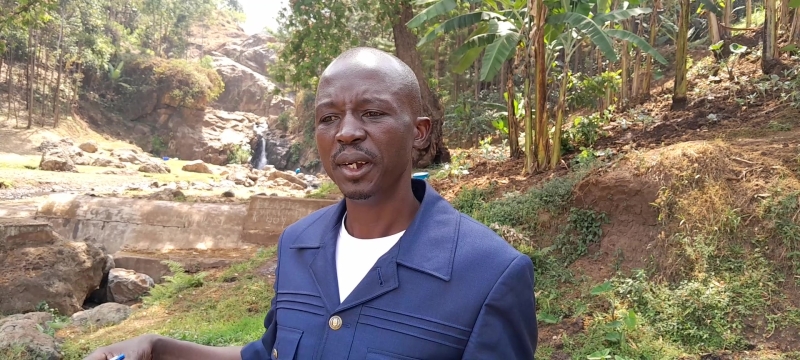Mbale, Uganda – A severe water crisis has struck the Elgon region, with Mbale town bearing the brunt of the devastating dry spell that has persisted for over two months. The prolonged drought has caused many natural water sources to dry up, while the National Water and Sewerage Corporation (NWSC) has failed to supply tap water to numerous households, leaving residents in dire straits.
The situation has forced many residents, particularly women, to endure sleepless nights as they wake up as early as 2 a.m. to search for water. Areas such as Doko Village, Namatala, Uber Stores, and Maluku are among the most affected, with long queues of jerricans lining up at the few remaining water sources. Women, who are primarily responsible for fetching water, are seen carrying multiple jerricans in the early hours of the morning, often risking their safety to secure this essential resource.
Candy and Nafuna Prima, two residents of Namatala, shared their struggles with us. "We have to wake up as early as 3 a.m. to get water. It’s risky, but as women, we need water for our families," they said. For those who arrive late, the wait can be agonizingly long, with some spending hours in line only to return home empty-handed.
The crisis has also created an unexpected economic opportunity for some. Boda boda riders, who typically transport passengers, have shifted to ferrying water for profit. Namakola Ayub, a boda boda rider, revealed that he has stopped carrying passengers and now focuses on transporting water. "People pay between 1,000 to 2,000 shillings per jerrican. It’s more profitable," he said. However, this has further strained the already desperate situation, as the cost of water has become unaffordable for many.
Haruna Kabuye, a resident of Doko Village, lamented the toll the crisis has taken on his family. "I left home at 1 a.m. but by 6 a.m., I still hadn’t gotten any water," he said. He also expressed concern over the social tensions arising from the crisis, with some men beginning to suspect their wives of infidelity due to the long hours spent searching for water.
Environmental experts have attributed the crisis to climate change and rampant deforestation. Mr. Siriagi Ssebugwowo, a local environmentalist, emphasized the need for urgent action. "This is a result of climate change. We’ve cut down too many trees, and now we’re paying the price. We must plant more trees to prevent such crises in the future," he said.

Mr. Budiru Wadwasi, the water manager for the Mbale area, acknowledged the severity of the situation. "The rivers that supply water have dried up, leaving us with limited options," he said. However, he assured residents that the Ministry of Water is working on a mega plan to store more water for use during dry seasons.
As the water crisis deepens, residents of Mbale continue to endure immense hardship, with no immediate relief in sight. The situation underscores the urgent need for sustainable water management and environmental conservation to mitigate the impacts of climate change and ensure a reliable water supply for future generations.
For now, the people of Mbale remain resilient, but the question on everyone’s mind is: how long can they hold on?













